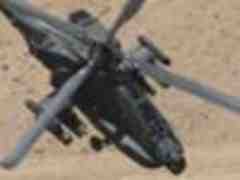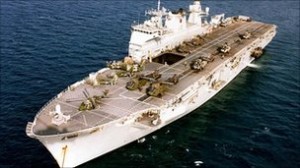INTERVIEW WITH CYNTHIA MCKINNEY ON STATE TV, SENT BY DON DEBAR OF DIGNITY DELEGATION CURRENTLY ON GROUND IN LIBYA
WAYNE MADSEN REPORTS FROM LIBYA
Saturday, June 4, 2011

- PHOTO – Mostly black African refugees, who fled Libya after US allied rebels committed war crimes against them because of their skin color, in sprawling refugee camps on the Tunisian side of the border.
June 4-5, 2011 — TRIPOLI, LIBYA. WMR Exclusive.
Western Libya portrait is not what is being painted by the Western media
Western media reports continue to indicate that Libyan rebels trying to oust Libyan leader Muammar Qaddafi from power, backed by daily NATO air strikes, are gaining ground in western Libya. During a six-hour drive from the Tunisian border to Tripoli, the Libyan capital, this reporter saw no signs of Libyan rebel successes in western Libya. In fact, I witnessed a spontaneous pro-Qaddafi demonstration on the main Tunisia-Tripoli highway in a town about one and a half hours west of Tripoli.
The green flag of the Libyan Arab Jamahiryah not only adorn flag poles in towns from Tripoli to the Tunisian border, but a number of private residences are flying the green flag from their rooftops, on flag poles, and even from outside of top floor windows in medium size and small towns alike along the main highway.
There are some telltale signs of previous fighting in the western part of the country — bullet holes in the walls of some buildings and even some more extensive structural damage — but there are no signs that the rebels, backed by the United States, NATO, and the European Union, have any substantial support in western Libya.
The one major sign of the Libyan civil war lies not in western Libya but across the Tunisian border where several refugee tent cities have been set up to accommodate thousands of refugees, most of them black African guest workers from sub-Sahara and Sahel nations who were set upon by rebels who said the workers were “mercenaries”brought to Libya by Qaddafi to fight on his behalf. In fact, there is a strong anti-black racialist element within the Libyan rebel movement that used the mercenary meme to justify heinous war crimes by rebel units against blacks from other African nations, as well as native Libyan blacks.
While many of the refugee camps on the Tunisian side of the Libyan frontier are sponsored by the International Committee of the Red Cross, one is funded by the United Arab Emirates, one of the nations participating in President Obama’s “coalition of the willing” that is waging a war on behalf of the Libyan rebels. From our hotel on the Mediterranean coast, we expect to see and hear the attacks conducted against military and some civilian targets a further few miles inland in downtown Tripoli.
The EU and NATO sanctions on Libya are being severely felt by Libya’s civilians. Petrol stations are rationing gasoline and long lines of cars sit waiting for gasoline to be delivered to the pumps. The NATO, EU, and U.S. policy of “collective punishment” of western Libya’s civilian population is being compares to Israel’s collective punishment of the Palestinians of Gaza and the West Bank. In fact, many Libyans believe that Obama’s crippling sanctions on western Libya were crafted by Israel’s lobby in Washington, which pressured the Obama administration into adopting them.
NATO has conducted nightly air strikes against western Libya, including downtown Tripoli, since March 19. The attacks begin around 12 midnight local time and at the time of this report we are expecting another NATO bombing of Tripoli in a little less than an hour.
Please visit www.waynemadsenreport.com for more information from Wayne on Libya and other important issues:
Posted by Don DeBar at 7:14 AM
Below: a really interesting, insightful and inspiring conversation between Sons of Malcolm’s Sukant Chandan and Libyan brother Faraj Jibreel on the evening of 02 June 2011 in the Libyan capital, Tripoli.…
VOD EDITOR: THE FOLLOWING REPORT FROM THE BBC REGARDING THE FIRST USE OF UK APACHE HELICOPTERS TO ATTACK LIBYA INDICATES THE LEVEL OF DANGER FORMER CONGRESSWOMAN MCKINNEY AND OTHER MEMBERS OF THE DIGNITY DELEGATION ARE FACING. SUCH HELICOPTERS ARE CAPABLE OF PINPOINT ATTACKS. SEE LINKS FOLLOWING FROM LIZZIE COCKER WHO REPORTS THERE IS NO EVIDENCE OF ATTACKS FROM GADHAFI’S FORCES ON CIVILIANS.
UK APACHE HELICOPTERS USED FOR FIRST TIME TO ATTACK LIBYA; BRITISH GOVT. OFFICIALS MEET WITH CIA-LED OPPOSITION FORCES
Jonathan Beale, Defence correspondent, BBC News
http://www.bbc.co.uk/news/uk-13651736
Apache pilot: “We’re pleased that it was mission success”
UK Apache attack helicopters have been used over Libya for the first time, Nato has confirmed.
They attacked and destroyed two military installations, a radar site and an armed checkpoint near Brega, the Captain of HMS Ocean told the BBC.
The Apaches are understood to have faced incoming fire.
Meanwhile, it has been confirmed that Foreign Secretary William Hague has arrived in rebel-held Benghazi in eastern Libya.
He is due to hold talks with the head of Libya’s opposition National Transitional Council (NTC), Mustafa Abdul Jalil, later.
(VOD editor: click on http://voiceofdetroit.net/?p=6334 to read Cynthia McKinney’s statement about Jalil’s direct connections to the CIA.)
International Development Secretary Andrew Mitchell has also made the trip to Benghazi.
French Gazelle helicopters also took part in simultaneous attacks on different targets in Libya for the first time.
On Wednesday, Nato extended its mission in Libya by 90 days.
Major General Nick Pope, the chief of the defence staff’s strategic communications officer, said:”The Apaches were tasked with precision strikes against a regime radar installation and a military checkpoint, both located around Brega.
“Hellfire missiles and 30mm cannon were used to destroy the targets. The helicopters then returned safely to HMS Ocean.”
He said the targets had been “carefully and rigorously selected” and said intelligence about the positions of the Gaddafi forces had been improving “despite their efforts to conceal themselves”.
Two of the four Apaches on board HMS Ocean left under the cover of darkness. From the ship you can see the lights on Libya’s coast.
This was a mission that would signal an escalation in the bombing campaign. It would also come with added risks.
The Apaches fly lower and slower than other Nato warplanes – able to identify a wider range of targets, but also more vulnerable to attacks from the ground.
Defence Secretary Liam Fox added: “The attack helicopter is yet another potent and formidable aircraft type which has now been added to the Nato forces engaged on this operation. Those who are still supporting Colonel Gaddafi would do well to realise that the best way to remove themselves from danger is to understand that their future lies with the Libyan people, not a discredited regime.”
The former head of the Army, Lord Dannatt, said the move has an “inevitable intensification”.
“If you pick up the words from when President Obama was visiting, what we’ve heard the prime minister say, we don’t want to let this thing linger on any more than we absolutely have to.
“The mission under UNHCR 1973 is quite clear, it’s to protect people but of course the implied task, and let’s be absolutely open and honest about it, is the removal of Colonel Gaddafi.”
Missile risk
The decision to send four British Apache helicopters to Libya was made by Prime Minister David Cameron on 27 May.
Their deployment via HMS Ocean means there should be less chance of civilian casualties in operations that previously relied on the use of Tornado and Typhoon aircraft.
But the Apaches operate at lower altitudes and could be targeted by Libyan forces loyal to Col Gaddafi, which still have access to thousands of surface-to-air missiles.
Labour MP Graham Allen claimed the introduction of Apaches was “mission creep” and said there needed to be a fresh debate in the House of Commons on Libya.
“The way out of this mess is not to keep cranking up the military hardware and having so-called ‘implied tasks’ added on against the express view of the House of Commons; what we need to do is figure out how we can get a political solution that will last for several generations in Libya rather than this adventure which has no prospect of coming to a close,” he said.
Nato intervened in Libya after the UN passed a resolution for the protection of civilians, amid a two-month revolt inspired by other uprisings in the Arab world.
It has intensified raids in recent weeks with attacks on command-and-control structures in the capital Tripoli.
The intervention was initially led by France, Britain and the US until 31 March – when Nato took over. It was given an initial 90 days, which would have run out on 27 June.
On Wednesday, UN investigators accused government forces in Libya of war crimes and crimes against humanity.
Rights experts said they had found evidence of crimes including murder and torture, in a pattern suggesting Libyan leader Muammar Gaddafi was behind them.
The UN mission also said opposition forces were guilty of abuses that would constitute war crimes, although they were not so numerous.
Click on the link below to view French video on Apache attacks.
http://www.france24.com/en/20110604-nato-strikes-libya-with-attack-helicopters-gaddafi
Don DeBar has also sent the following materials from the last several weeks, received from Lizzie Cocker, journalist and activist also on the ground in Libya:
Lizzie Cocker on Press TV discussing Libya
Sukant Chandan on Russia Today stating NATO war claims are false
Sukant Chandan again on Russia Today discussing Libya (Second video from bottom)
And once more discussing Libya (second video from bottom)
Lizzie Cocker’s first video blog from Tripoli
Sukant Chandan interviews Hospital worker at the sight of the NATO bombing of Saif Al-Arabs home
87 Ferris Pl
Ossining, NY 10562
914 374-2475
dondebar@optonline.net
www.WBAIX.org
Below is Libyan-produced commentary on history of conflict.






